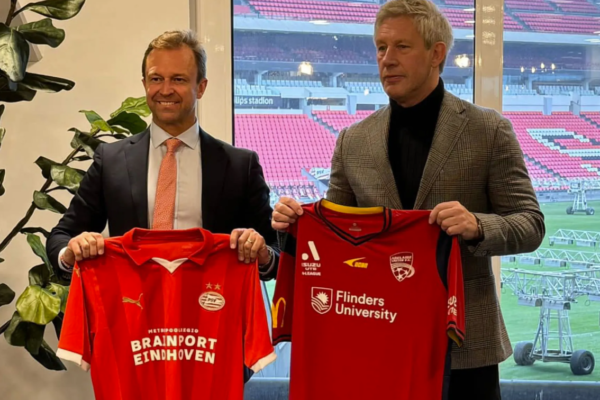
Football Australia has announced the addition of Elizabeth (Liz) Broderick AO, Special Rapporteur and Independent Expert to the United Nations, Paralympic champion Kurt Fearnley AO, and Tourism Australia Managing Director Phillipa Harrison to the Legacy ’23 Ambassador Program.
The brand-new additions are set to bring their unique expertise to the program, particularly in the areas of international advocacy and diplomacy, tourism, plus diversity and inclusion. The trio will speak to the wide range of ambitions highlighted in Football Australia’s bold and innovative Legacy ’23 plan in the lead up to and beyond the FIFA Women’s World Cup Australia & New Zealand 2023.
In her former role as Australia’s longest-standing Sex Discrimination Commissioner, Liz Broderick AO has played an integral role in helping to break down structural and social barriers faced by women and men and has cemented herself as a globally recognised leader and advocate for diversity and inclusion.
Through her influential work with the United Nations and the Champions of Change Coalition, focusing on the rights of women and girls, Liz will use her Legacy ’23 ambassador role to help drive conversations around how gender equality in sport can influence other industries and progress international diplomacy.
Of her role, Liz said via a Football Australia statement:
“I hope that through Legacy ’23 we will see the sport become a catalyst to help our nation achieve gender equality for the next generations of women and girls here in Australia and across the world. What we know from all the research is that greater levels of gender diversity, build performance and capability, and that’s the great opportunity that exists off the back of 2023.”
Having grown up in the regional New South Wales town of Carcour, three-time gold medal-winning Paralympian, Kurt Fearnley AO, knows first-hand the importance of having advocates to support an individual’s progress and access to equal opportunities.
Of his role, Kurt said via Football Australia:
“Being a Legacy ’23 Ambassador is about making sure I can continue to play a role in ensuring that people with disabilities are visible and accepted within the community. The acceptance of the community was integral to my journey to becoming a professional athlete, and without it, I may never have been able to realise my potential. So, I hope that through Legacy ’23 we can further level the playing field and create pathways for athletes of all ages, all cultures and abilities.”
For Phillipa Harrison, hosting the FIFA Women’s World Cup 2023 represents an incredible moment for the Australian travel and tourism industry to showcase the world-class experiences the country has on offer and reinvigorate the local economy after a challenging two years. Phillipa is also excited to be able to leverage her role as a Legacy ‘23 Ambassador to celebrate the rich diversity of our First Nations people across all corners of Australia.
Beyond her passion to show the best of Australia to the world, Legacy ’23 also represents something quite personal for Phillipa, saying via Football Australia:
“As a mother of two young daughters, it’s really important that they see the possibilities of what they could be, and I would love to think that by having this global event in our own backyard, a whole generation of Australian girls can set their sights a little bit higher on what they can achieve now and into the future.”
Football Australia CEO James Johnson added via Football Australia about the new appointments:
“Our Legacy ’23 Ambassador program set out to represent the rich diversity of our community and with the addition of Liz, Kurt and Phillipa we are one step closer to achieving that. We believe in the ability of this program to influence change at a policy level, but most importantly at a societal level, and all of our ambassadors will be integral in supporting us with our ambitions to drive meaningful and lasting change in our game.”
Previously announced ambassadors making up the Final XI include:
- The Hon. Julie Bishop, Chancellor of Australian National University
- Julie Dolan AM, Matildas cap #1
- Azmeena Hussain OAM, Director Football Victoria and social justice advocate
- Narelda Jacobs, NIAG Member and Network 10 Presenter
- Kate Jenkins, Australia’s Sex Discrimination Commissioner
- Awer Mabil, Socceroo






















